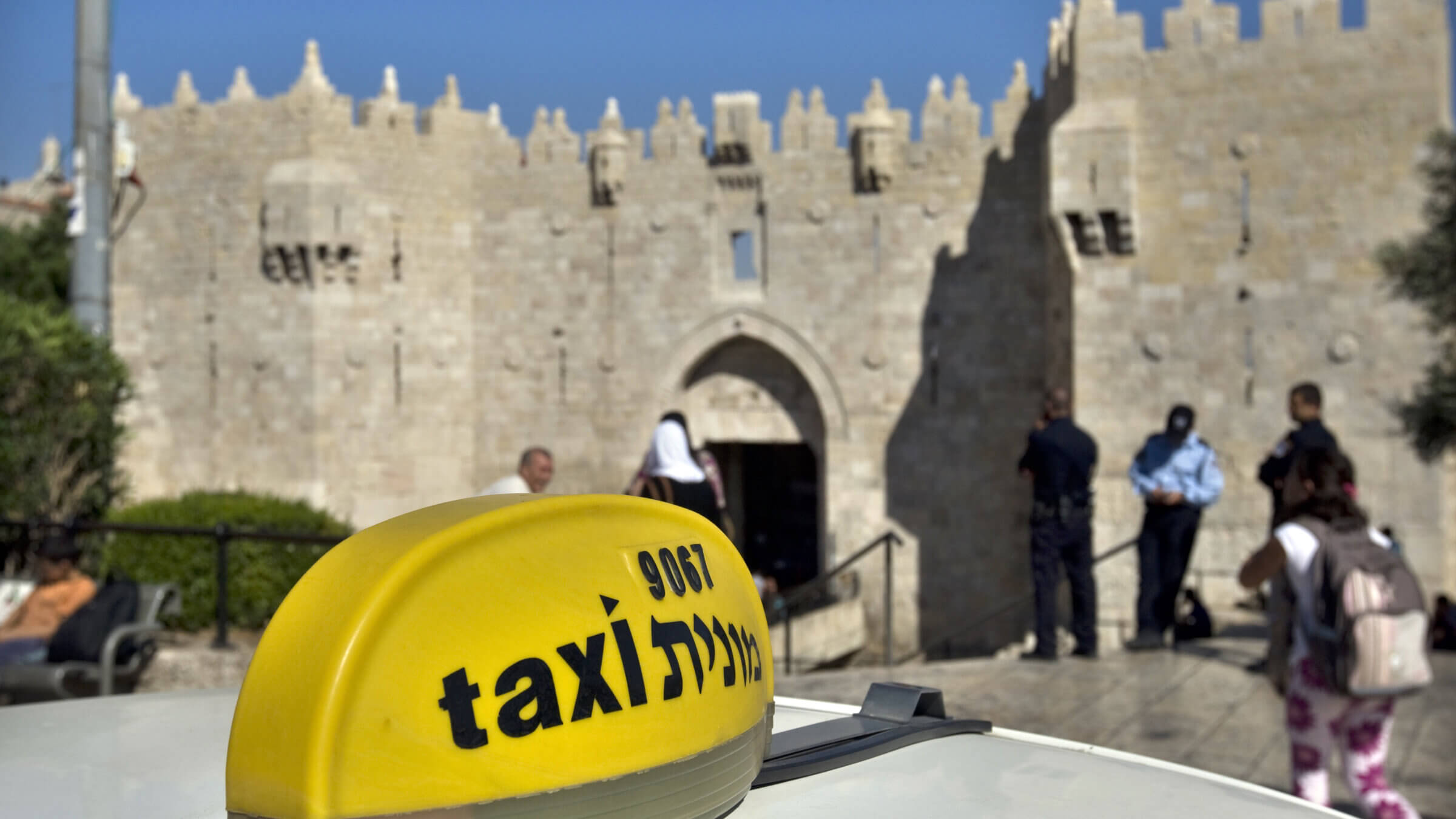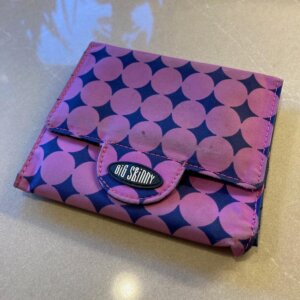First PersonHow a lost (and found) wallet in Jerusalem gave me hope about Israel’s future
An Arab-Muslim cabbie and an ultra-Orthodox immigrant unite to help a hapless American tourist

A taxi waits outside Damascus Gate in Jerusalem. Photo by Ahmad Gharabli/AFP via Getty Images
I realized I’d left my wallet in the cab within five minutes of exiting it, but that didn’t help much.
I was in Israel for 12 days last month to see cousins and friends, and had spent the day in Tel Aviv at the wonderful Anu Museum of the Jewish People. This involved taking the bus from the apartment my siblings and I inherited in the Kiryat Shmuel neighborhood of Jerusalem to the light rail station downtown, then the light rail to the fast train. This was followed by a hike to the museum, three hours on my feet looking at exhibits, then reverse and repeat. By the time I got back to Jerusalem, I couldn’t find the right bus stop, and, still suffering from jet lag, got in a cab when I noticed a free one.
The cabbie was chatting on his phone in Arabic when I got in. We exchanged a few words in Hebrew about where I was headed, and then I fumbled with my old faithful rose-and-purple houndstooth nylon wallet to pay him with shekels left over from my last trip, before the pandemic. I didn’t ask for a receipt.
So when I went to buy toilet paper at a store about 10 feet from where the cab dropped me off, and found the wallet missing, I had no way to identify either cab company or driver.
Berating myself for my lapse in concentration, I was at first panicked, as I had only my passport and phone (thankfully!), but no money. In my wallet had been about $200 and another $400 worth of shekels; two credit cards (I immediately canceled one and put a temporary block on the other); my Massachusetts driver’s license and medical license (you never know when this might come in handy); and my health insurance card. Israeli friends quickly came with some cash to tide me over, and called every known cab company to ask about a found wallet, without luck.
Then, about an hour later, I got a text message from the medical office outside of Boston where I had been a family physician for 22 years until my retirement at the end of 2018. “There’s a man on the phone saying he may have found your wallet,” the message said. “Are you traveling?”
I was flabbergasted, and allowed myself to be hopeful, even as Melissa, the receptionist at my old office, whose parents had been my patients, warned me very solicitously to only meet with any stranger outdoors in a public place. Soon, thanks to SMS and WhatsApp I was on the phone with a Haredi Jew from New York who lived about a 25-minute drive across Jerusalem from the apartment my parents had bought a few years after making aliyah in 1972.
It turned out that the passenger who got into the cab after me found my wallet immediately, and was on his way home to the Ma’alot Dafna neighborhood, where he had a neighbor who shared my last name. He brought the neighbor my wallet, the cabbie tagging along. The neighbor, Mordechai Fishman, didn’t know me but knew how to use Google, and quickly dialed the medical office that popped up next to my name. Once Melissa checked that I was OK with it, she gave the neighbor my number, and he reached out via WhatsApp, then gave the cab driver, who insisted on personally returning the wallet, my information.
When the cab driver called to let me know he had arrived at my address, his name popped up as Mohammed Issa N. I met him on the street outside my building. At first, he resisted my efforts to reward him for his time — at least an hour without a fare as he stuck close to my wallet and the effort to get it back to me — and generosity of spirit.
“It is the only thing to do,” he explained in Hebrew. “I had to do this. It is the way I want to see the world.”

But I couldn’t allow him to leave without a gesture of my overwhelming thanks, so I gave him 200 shekels — a bit less than $60 — from my wallet. As I handed him the money, I said, in Hebrew, “May Allah bless you for the kindness you showed me.” I imagine the words I used were very similar to those used by our Biblical foreparents.
Back in my apartment, I texted with Mordechai Fishman, the intermediary between me and the cab driver. He had made aliyah in 2005 from a Haredi enclave in Monsey, New York, now living in a similar neighborhood in Jerusalem.
Thankfully, he was involved enough in the outside world to be willing and know how to use technology to find me. I expressed my extreme gratitude to him, as well, and he responded that he was happy to be able to fulfill the mitzvah of returning lost objects. I later found out that he teaches in a yeshiva and works in his family’s real estate business.
Only in Jerusalem: An ultra-Orthodox immigrant and a Palestinian from East Jerusalem collaborating to help a feminist-progressive-Zionist American tourist recover her wallet, not one thing out of place. Israel’s national politics instill in me depression and despair. But the kindness and intrinsic goodness of its people remain heartwarming and models for what can and should be the norm.
A message from our Publisher & CEO Rachel Fishman Feddersen

I hope you appreciated this article. Before you go, I’d like to ask you to please support the Forward’s award-winning, nonprofit journalism during this critical time.
We’ve set a goal to raise $260,000 by December 31. That’s an ambitious goal, but one that will give us the resources we need to invest in the high quality news, opinion, analysis and cultural coverage that isn’t available anywhere else.
If you feel inspired to make an impact, now is the time to give something back. Join us as a member at your most generous level.
— Rachel Fishman Feddersen, Publisher and CEO






















